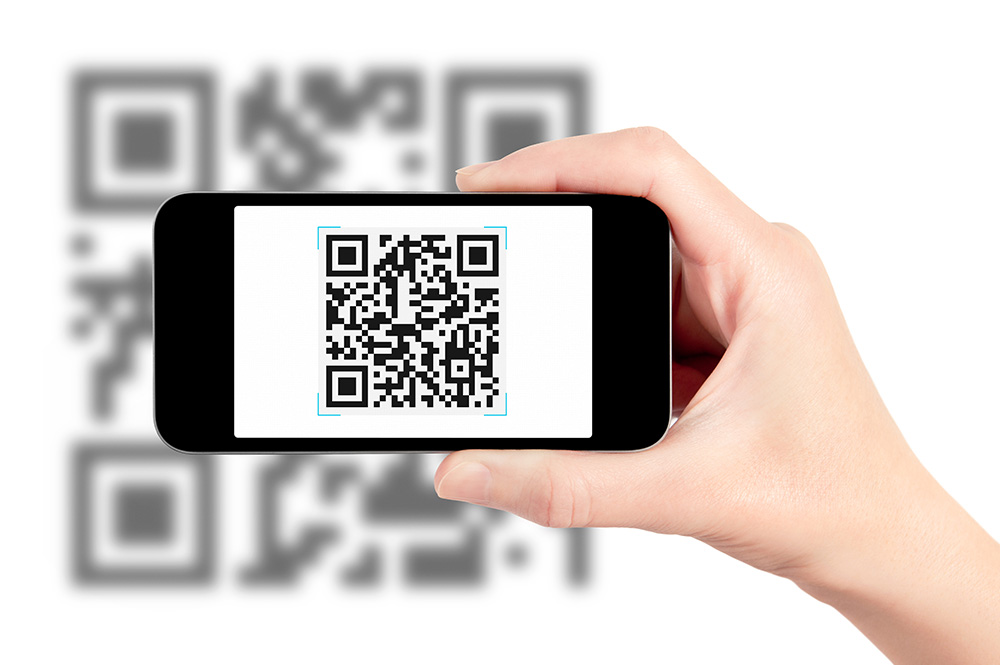The first time I saw a QR Code was in 2010. I thought it was a brand-new invention.
I didn’t realize at the time that the Quick Response—or QR Code—was actually developed in 1994 by a Japanese company, Denso Wave, based on a two-dimensional model. It was made up of a matrix of black and white squares with a position pattern on three corners to identify the orientation. The QR Code was effectively designed for high-speed reading and could hold more information than a one-dimensional barcode. In a surprising move, Denso Wave decided to make the specifications of the QR Code publicly available so that anyone could freely use it.
Which is why 16 years later, I stood in front of a QR Code in amazement. To scan it, I had to download a separate app on my iPhone, and it took me several minutes to figure out how close to hold it and how to get it to scan properly, not to mention that when I finally got it to scan, it took me to a website that was not mobile friendly. But it was still cool, and it made me feel like I was on the cutting edge of technology—and so did lots of other people.
But only for a short time. By 2011, barely one in five Americans ever used QR Codes, and for the next few years, they faded into what most people thought was a dying fad.
Then, surprisingly in 2017, Apple integrated a native QR Code reader into their camera app as part of their iOS 11 update, and other phones soon followed suit. When the COVID-19 pandemic hit in 2020, and everyone was talking about distancing and touchless connections, QR Codes were the perfect option for linking to anything hosted online.
Now, QR Codes are plastered everywhere—restaurant menus, business cards, ads, document management, forms, scheduling, coupon codes, and even billboards. In the US there were 83.4 million QR Code users in 2022, and that is expected to increase to 99.5 million by 2025, according to Insider Intelligence.
Here are some reasons QR Codes should be a considerable factor in your marketing strategy.
1. QR Codes are Accessible
With the ubiquitous rise of the smartphone and the capability of smartphone camera apps to recognize a QR Code, this has become the fastest way to connect to a webpage or network or find payment information. There is no need for manual data entry or trying to type in a lengthy website URL, which is much easier for everyone and particularly beneficial for individuals with visual or cognitive impairments.
2. QR Codes are Versatile
QR Codes serve diverse functions across virtually every industry. Some prominent sectors include healthcare, marketing, manufacturing, retail, education, restaurants, finance, real estate, entertainment, and government. The adaptability of the QR Code has made it a virtually indispensable tool in modern applications.
3. QR Codes are Cost-Effective
There are free QR Code generators, and QR Codes are easy to post, offering a reliable way for customers and potential customers to connect to your business or ministry, streamlining processes and reducing the need for manual data entry or printed materials. In marketing, they are also a cost-effective way to advertise your services—especially compared to traditional print ads—enabling targeted campaigns with minimal distribution costs.
4. QR Codes are Space-Saving
The small size of QR Codes makes them easy to place and print in different locations. Because QR Codes store data both horizontally and vertically, they maximize the information within a limited area, making them ideal for situations where spatial constraints are a concern.
While initially perceived as a novelty, the QR Code has journeyed from near obscurity to emerging as a vital tool. With its accessibility, versatility, cost-effectiveness, and space-saving attributes, it has become an integral part of contemporary marketing strategies.
Let the team at Infinity Concepts help you stay on top of digital trends so that your strategies reach people where they are. CLICK HERE to explore how we can help you!
- Step Up: 5 Ways to Lead with Integrity and Impact - June 13, 2025
- Master the Art of Ministry Email Newsletters - March 14, 2025
- Is A/B Testing Still Effective in 2025? - December 27, 2024

